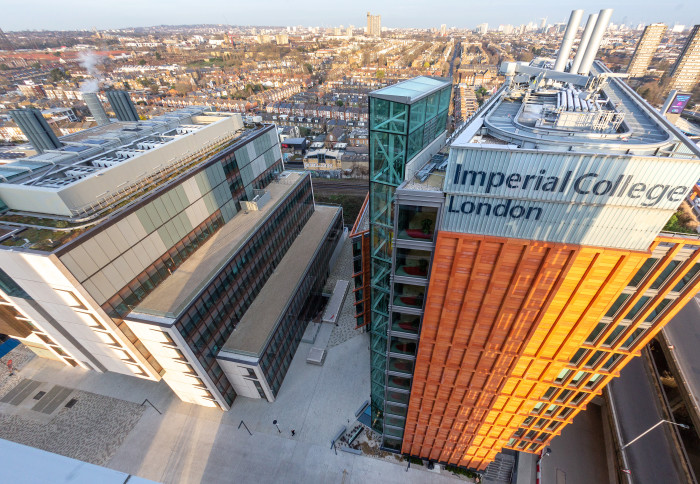Imperial and TUM explore ways to create innovative communities

Imperial's White City Campus
Imperial and Germany's Technical University of Munich (TUM) brought academics and startups together to explore ways to create innovative communities.
University leaders from Imperial and TUM joined research start-ups to discuss ways that they are designing campuses that bring together scientists, business and industry, and communities to address local and global challenges.
Imperial's White City Campus is based in one of the most dynamic and rapidly changing parts of London, and is already host to many exciting startups and research centres, while TUM's Garching HighTech Campus in Munich is one of the most prominent R&D campuses in Germany.

Imperial’s Vice-President Maggie Dallman highlighted the how the two universities have already been collaborating successfully together and are looking for more opportunities to build connections.
The universities formed a ‘flagship’ strategic partnership in 2018 and now intend to develop programmes to link their research and innovation ecosystems, including the White City Translation Campus and the Garching Campus.
Professor Dallman said: “Since we signed a partnership agreement with TUM we’ve seen lots of really valuable programmes and connections being made across research, innovation and education.
“We are two dynamic universities in two amazing cities, we should be able to do something for future, the economy and to help get us out of this current situation with the coronavirus.”
Creating international connections for a global university

Associate Provost (Academic Planning), Professor Neil Alford explained how the White City Campus provides space for world-class researchers and businesses to work, share ideas and turn cutting-edge research into benefits for society.
Professor Alford said: “We want collaboration with academics, corporations and the community. We’ve built a very entrepreneurial environment, which will help create international connections for our global university.”

Professor Dallman added: “We’re very keen to involve the community surrounding our new campus. The community cohesion that has been developed through engagement programmes, such as those at the Invention Rooms, has been truly magical and inspirational to watch. Imperial is adapting to the changes in our society and are creating districts to support that change.”
Professors Dallman and Alford were joined for the discussion by TUM's Vice President of Entrepreneurship Prof. Dr. Helmut Schönenberger and Chair of Urban Structure and Transport planning Prof. Dr. Gebhard Wulfhorst.
Professor Schönenberger said: ""With our startup activities at the TUM campus in Garching, we have developed one of the most dynamic and vibrant innovation ecosystems in Europe. Both the Garching as well as the White City Campus illustrate how technical universities can have a strong impact not only on local communities but also on national economies and contribute to the Sustainable Development Goals.”
The event, Towards a London-Munich innovation network: Universities as drivers of European R&D ecosystems, was co-organised by the UK Science and Innovation Network Germany, the German U15, the Imperial College London and BABLE.
Innovative start-ups
Start-ups from Imperial and TUM discussed best practices for creating successful innovation ecosystems.
Imperial start-up Rightly, led by Tom Andrews, is building tools to give individuals more control over their data. In 2018, the team won second place at Imperial’s White City Incubator accelerator programme.
Respire Diagnostics, co-founded by Imperial alum Shaokai Hong, are developing the next generation of medical diagnostic tools. They are developing a handheld device and disposable sensors that can measure the concentration of biomarkers in exhaled breath to diagnose respiratory diseases.
They were joined for the discussion by TUM startups KEWAZO and ORBEM. KEWAZO offers smart robotic elevators for industrial and construction sites, with the first application focus being scaffolding assembly. ORBEM transforms food systems towards a sustainable future. The A.I. powered digital technology automatically analyses and classifies biological samples, revolutionising the way we produce food to meet the needs of a rising population.
Article text (excluding photos or graphics) © Imperial College London.
Photos and graphics subject to third party copyright used with permission or © Imperial College London.
Reporter
Stephen Johns
Communications Division